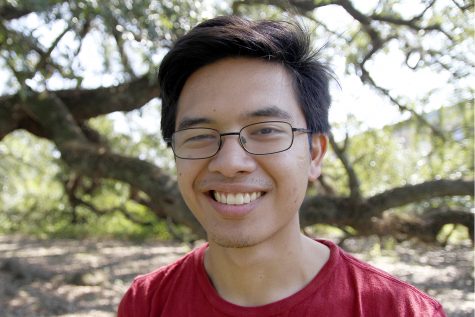
With no budget cuts to the 2017-2018 fiscal year, the budget had enough funding to create the Office of Graduate Studies and pay raises for university faculty.
In the Fall 2016 semester, tuition and fees for an undergraduate student taking 12 credit hours was $3,824.20 with roughly a $14.50 increase per credit hour going up to 20 credit hours. According to the Controller’s Office, the estimated tuition and fees for an undergraduate student taking 12 credit hours in the Fall 2017 semester is $4,294.70.
“The university did not make any budget cuts for the 2017-2018 year,” said Vice President for Administration and Finance Sam Domiano. “Budget year 2017-2018 is the first year that Southeastern has not experienced a reduction in state appropriation in 10 years. The primary increase included a small increase in student tuition of approximately 2.5 percent, or less than $100 per semester.”
Domiano compared this year’s budget to previous budgets.
“Funding available for 2017-2018 is slightly increased when compared to the previous fiscal years’ budget,” said Domiano. “While state support was relatively flat, there was an increase in self-generated dollars.”
According to the annual financial statements for the 2015-2016 fiscal year, net student tuition and fees comprised almost 66 percent of total operating revenues. Domiano discussed the funding composition for the 2017-2018 year.
“The majority of Southeastern’s revenue comes from state appropriations and student fees,” said Domiano. “The funding mix is approximately 25 percent state appropriation and 75 percent self-generated funds.”
Domiano explained where this funding was allocated.
“There were no reductions in support for basic university operations,” said Domiano. “The primary increase in funding was in personal services, which includes salaries, benefits and student labor. There was an additional allocation in scholarships.”
One change to the budget was the addition of merit-based pay raises announced at the Fall 2017 convocation. Approximately $3 million was allocated for this change.
“Class offerings or university staffing has not been affected by the budget,” said Domiano. “There was a small increase in salaries and benefits due to pay raises being given to all eligible employees. These pay raises were the first university-wide pay raises since 2008-2009 and will allow the university to retain and recruit qualified professors and support staff, which will have a positive and direct impact on students.”
Domiano elaborated on the decision to allocate funding for the Office of Graduate Studies.
“The graduate studies office will help better inform students about the benefits of Southeastern’s graduate programs as well as help them navigate through the graduate school admissions process with an intent to grow enrollment,” said Domiano.
Students were kept in mind when building the budget. According to Domiano, no area of the university was negatively affected with the implementation of the 2017-18 budget.
“The goal of every university budget is to provide the resources necessary for a great educational and student experience,” said Domiano.
Any obstacles in building the budget did not significantly impact critical aspects of the university.
“All universities face the issue of finite resources,” said Domiano. “However, the current budget funds the critical operations of the university as well as providing resources for additional investment in critical areas.”
A departmental budget unit list can be found on the website of the university Budget Office. The budget is projected to produce positive results.
“While we are unable to predict the future, the 2017-2018 budget represents a positive change as it related to university resources,” said Domiano.


